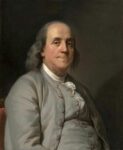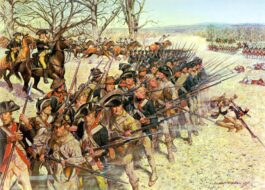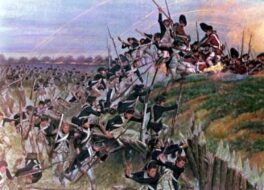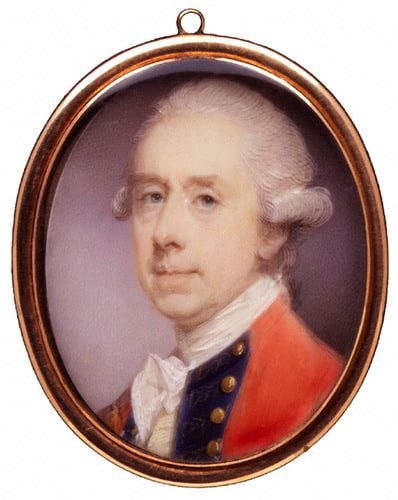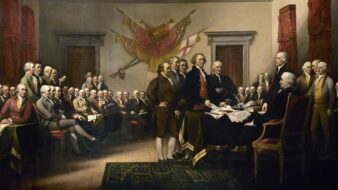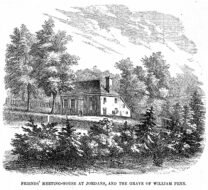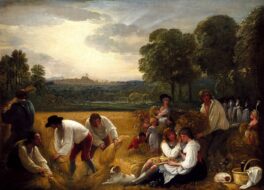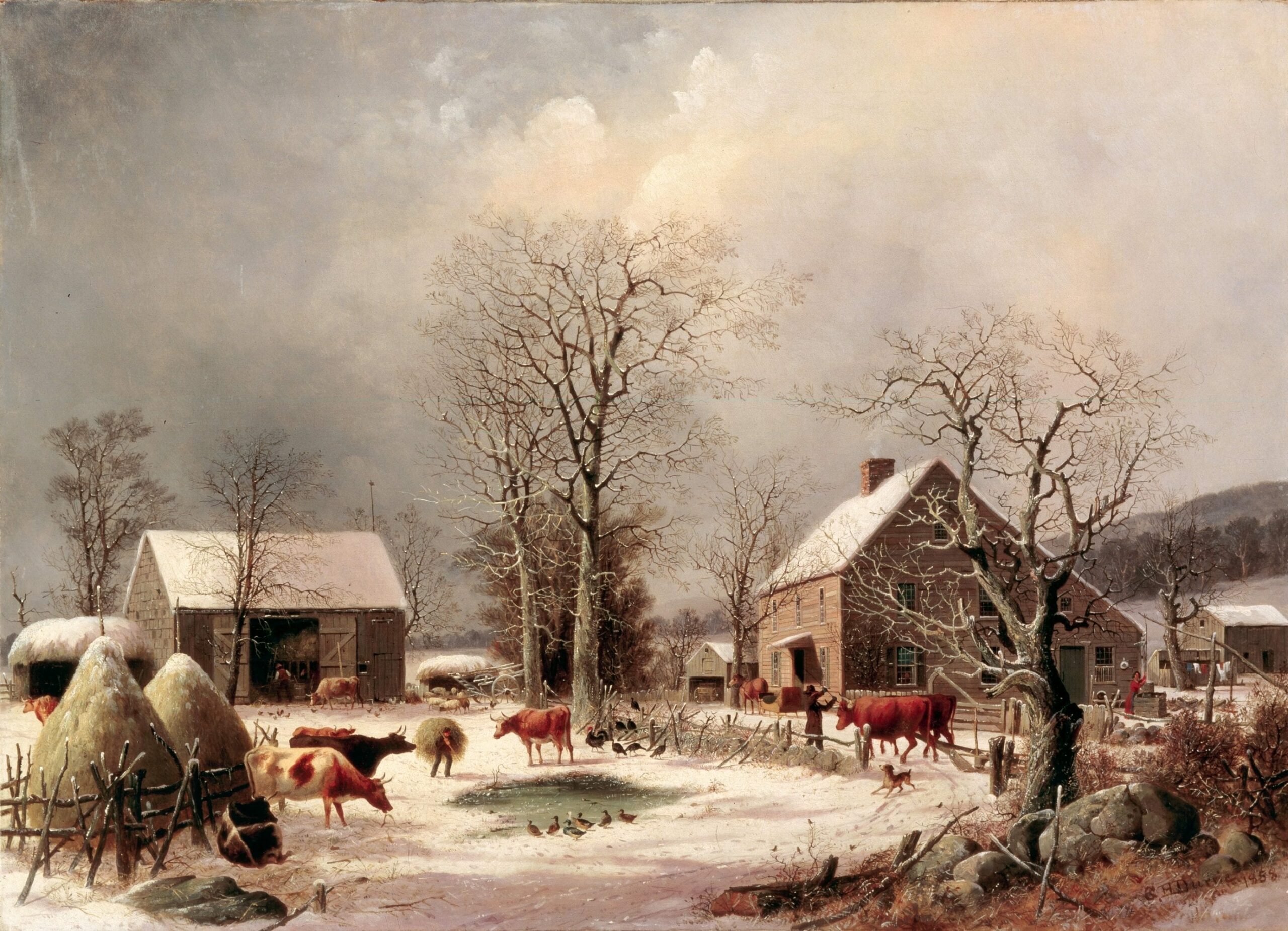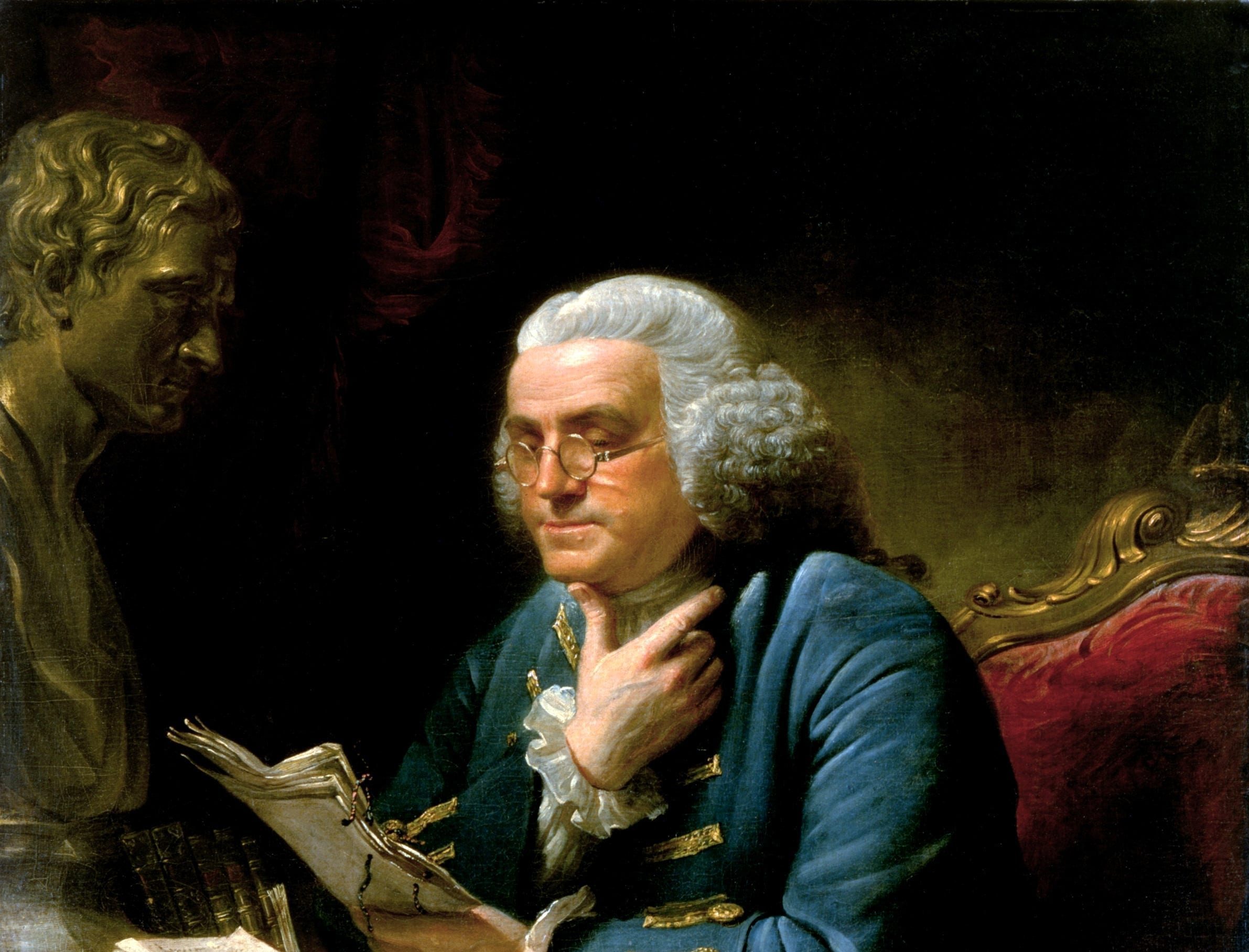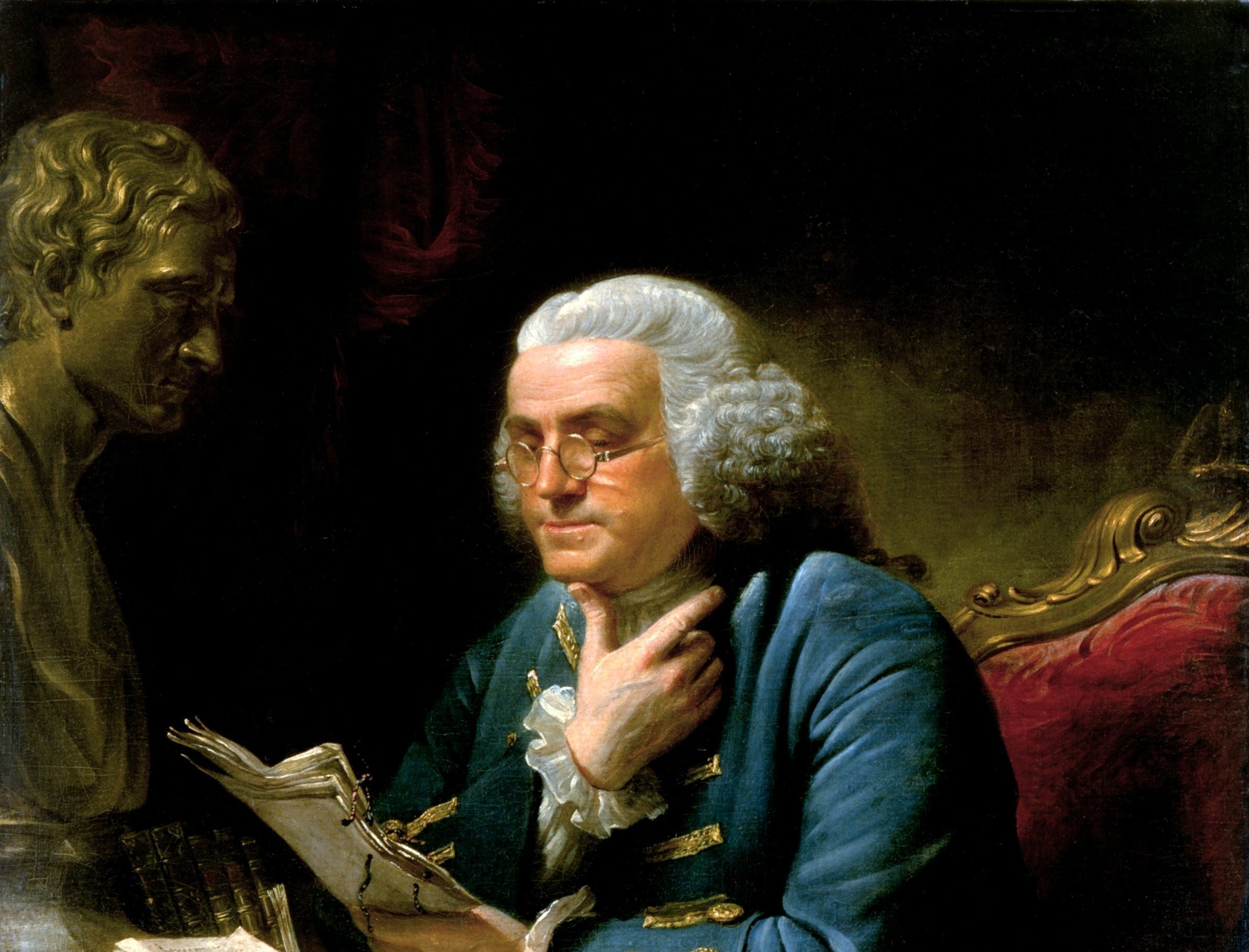
Introduction
Between November 1786 and February 1787, five states (New Jersey, Pennsylvania, North Carolina, Delaware, and Georgia) joined Virginia in choosing delegates for the proposed meeting in Philadelphia in May 1787 to consider revising the Articles of Confederation. Other state legislatures were reluctant to endorse the Annapolis recommendation for a convention without a formal authorization by the Confederation Congress and ground rules limiting the scope of the convention. The Confederation Congress considered the report of the Annapolis commissioners in February 1787. On February 21, the Congress agreed to become the official authorizing agent and limited the scope of the convention to “revising” the Articles. New York was the first state to act after the congressional endorsement. Four states followed New York’s lead – South Carolina, Massachusetts, Connecticut, and Maryland. New Hampshire’s delegates arrived at the Convention only on July 23. Rhode Island, the thirteenth state, declined to send delegates.
Source: Jonathan Elliot, The Debates in the Several State Conventions on the Adoption of the Federal Constitution . . . , 2d ed. (Philadelphia: J. B. Lippincott; Washington, DC: Taylor and Maury, 1836–1859); Journals of the Continental Congress, 1774–1789, Edited from the Original Records in the Library of Congress, by Roscoe R. Hill (Washington, DC: Government Printing Office, 1936), 32:71–74.
Annapolis Convention Authorization
Proceedings of the Commissioners to Remedy Defects of the Federal Government, Annapolis in the State of Maryland. September 14, 1786.
To the Honorable, the Legislatures of Virginia, Delaware, Pennsylvania, New Jersey, and New York, the commissioners from the said states respectively, assembled at Annapolis, humbly beg leave to report –
That, pursuant to their several appointments, they met at Annapolis in the State of Maryland on the eleventh day of September instant, and having proceeded to a communication of their powers; they found that the States of New York, Pennsylvania, and Virginia, had, in substance, and nearly in the same terms, authorized their respective Commissions “to meet such other Commissioners as were, or might be, appointed by the other States in the Union, at such time and place as should be agreed upon by the said Commissions to take into consideration the trade and commerce of the United States, to consider how far a uniform system in their commercial intercourse and regulations might be necessary to their common interest and permanent harmony, and to report to the several States such an Act, relative to this great object, as when unanimously by them would enable the United States in Congress assembled effectually to provide for the same.”
That the State of New Jersey had enlarged the object of their appointment, empowering their Commissioners, “to consider how far a uniform system in their commercial regulations and other important matters, might be necessary to the common interest and permanent harmony of the several States,” and to report such an Act on the subject, as when ratified by them, “would enable the United States in Congress assembled, effectually to provide for the exigencies of the Union.”
That appointments of Commissioners have also been made by the States of New Hampshire, Massachusetts, Rhode Island, and North Carolina, none of whom, however, have attended; but that no information has been received by your Commissioners, of any appointment having been made by the States of Connecticut, Maryland, South Carolina or Georgia.
That the express terms of the powers of your Commissioners supposing a deputation from all the States, and having for object the Trade and Commerce of the United States, Your Commissioners did not conceive it advisable to proceed on the business of their mission, under the Circumstances of so partial and defective a representation.
Deeply impressed, however, with the magnitude and importance of the object confided to them on this occasion, your Commissioners cannot forbear to indulge an expression of their earnest and unanimous wish, that speedy measures be taken, to effect a general meeting, of the States, in a future Convention, for the same, and such other purposes, as the situation of public affairs may be found to require.
If in expressing this wish, or in intimating any other sentiment, your Commissioners should seem to exceed the strict bounds of their appointment, they entertain a full confidence, that a conduct, dictated by an anxiety for the welfare of the United States, will not fail to receive an indulgent construction.
In this persuasion, your Commissioners submit an opinion, that the Idea of extending the powers of their Deputies, to other objects, than those of Commerce, which has been adopted by the State of New Jersey, was an improvement on the original plan, and will deserve to be incorporated into that of a future Convention; they are the more naturally led to this conclusion, as in the course of their reflections on the subject, they have been induced to think, that the power of regulating trade is of such comprehensive extent, and will enter so far into the general System of the federal government, that to give it efficacy, and to obviate questions and doubts concerning its precise nature and limits, may require a correspondent adjustment of other parts of the Federal System.
That there are important defects in the system of the Federal Government is acknowledged by the Acts of all those States, which have concurred in the present Meeting; That the defects, upon a closer examination, may be found greater and more numerous, than even these acts imply, is at least so far probably, from the embarrassments which characterize the present State of our national affairs, foreign and domestic, as may reasonably be supposed to merit a deliberate and candid discussion, in some mode, which will unite the Sentiments and Councils of all the States. In the choice of the mode, your Commissioners are of opinion, that a Convention of Deputies from the different States, for the special and sole purpose of entering into this investigation, and digesting a plan for supplying such defects as may be discovered to exist, will be entitled to a preference from considerations, which will occur without being particularized.
Your Commissioners decline an enumeration of those national circumstances on which their opinion respecting the propriety of a future Convention, with more enlarged powers, is founded; as it would be a useless intrusion of facts and observations, most of which have been frequently the subject of public discussion, and none of which can have escaped the penetration of those to whom they would in this instance be addressed. They are, however, of a nature so serious, as, in the view of your Commissioners, to render the situation of the United States delicate and critical, calling for an exertion of the united virtue and wisdom of all the members of the Confederacy.
Under this impression, Your Commissioners, with the most respectful deference, beg leave to suggest their unanimous conviction that it may essentially tend to advance the interests of the union if the States, by whom they have been respectively delegated, would themselves concur, and use their endeavors to procure the concurrence of the other States, in the appointment of Commissioners, to meet at Philadelphia on the second Monday in May next, to take into consideration the situation of the United States, to devise such further provisions as shall appear to them necessary to render the constitution of the Federal Government adequate to the exigencies of the Union; and to report such an Act for that purpose to the United States in Congress assembled, as when agreed to, by them, and afterwards confirmed by the Legislatures of every State, will effectually provide for the same.
Though your Commissioners could not with propriety address these observations and sentiments to any but the States they have the honor to represent, they have nevertheless concluded from motives of respect, to transmit copies of the Report to the United States in Congress assembled, and to the executives of the other States.
The Confederation Congress Authorization | February 21, 1787
The report of a grand committee consisting of Mr. Dane, Mr. Varnum,[1] Mr. S. M. Mitchell, Mr. Smith, Mr. Cadwallader, Mr. Irwine, Mr. N. Mitchell, Mr. Forrest, Mr. Grayson, Mr. Blount, Mr. Bull, and Mr. Few, to whom was referred a letter of 14 September 1786 from J. Dickinson[2] written at the request of Commissioners from the States of Virginia, Delaware, Pennsylvania, New Jersey and New York assembled at the City of Annapolis together with a copy of the report of the said commissioners to the legislatures of the States by whom they were appointed, being an order of the day was called up and which is contained in the following resolution viz.
“Congress having had under consideration the letter of John Dickinson, esquire chairman of the Commissioners who assembled at Annapolis during the last year also the proceedings of the said commissioners and entirely coinciding with them as to the inefficiency of the federal government and the necessity of devising such farther provisions as shall render the same adequate to the exigencies of the Union do strongly recommend to the different legislatures to send forward delegates to meet the proposed convention on the second Monday in May next at the city of Philadelphia.”
The delegates for the state of New York thereupon laid before Congress Instructions which they had received from their constituents, and in pursuance of the said instructions moved to postpone the farther consideration of the report in order to take up the following proposition to wit
“That it be recommended to the States composing the Union that a convention of representatives from the said States respectively be held at —— on ——[3] for the purpose of revising the Articles of Confederation and perpetual Union between the United States of America and reporting to the United States in Congress assembled and to the States respectively such alterations and amendments of the said Articles of Confederation as the representatives met in such convention shall judge proper and necessary to render them adequate to the preservation and support of the Union.”
On the question to postpone for the purpose above mentioned the yeas and nays being required by the delegates for New York.
| Delegate | State | ||
| Massachusetts | Mr. King
Mr. Dane |
ay
ay |
aye |
| Connecticut | Mr. Johnson
Mr. S. M. Mitchell |
ay
no |
divided |
| New York | Mr. Smith
Mr. Benson |
ay
ay |
aye |
| New Jersey | Mr. Cadwallader
Mr. Clarke Mr. Schurman |
ay
no no |
no |
| Pensylvania | Mr. Irwine
Mr. Meredith Mr. Gingham |
no
ay no |
no |
| Delaware | Mr. N. Mitchell | no | x[4] |
| Maryland | Mr. Forest | no | x |
| Virginia | Mr. Grayson
Mr. Madison |
ay
ay |
aye |
| North Carolina | Mr. Blount
Mr. Hawkins |
no
no |
no |
| South Carolina | Mr. Bull
Mr. Kean Mr. Huger Mr. Parker |
no
no no no |
no |
| Georgia | Mr. Few
Mr. Pierce |
ay
no |
no |
So the question was lost.
A motion was then made by the delegates for Massachusetts to postpone the farther consideration of the report in order to take into consideration a motion which they read in their place, this being agreed to, the motion of the delegates for Massachusetts as taken up and being amended was agreed to as follows
Whereas there is provision in the Articles of Confederation and perpetual Union for making alterations therein by the assent of a Congress of the United States and of the legislatures of the several States; And whereas experience hath evinced that there are defects in the present Confederation, as a mean to remedy which several of the States and particularly the State of New York by express instructions to their delegates in Congress have suggested a convention for the purposes expressed in the following resolution and such convention appearing to be the most probable mean of establishing in these states a firm national government.
Resolved that in the opinion of Congress it is expedient that on the second Monday in May next a Convention of delegates who shall have been appointed by the several states be held at Philadelphia for the sole and express purpose of revising the Articles of Confederation and reporting to Congress and the several legislatures such alterations and provisions therein as shall when agreed to in Congress and confirmed by the states render the federal constitution adequate to the exigencies of Government and the preservation of the Union.
- 1. James Varnum, Rhode Island. The table in the document identifies the other members of the grand committee.
- 2. John Dickinson, Delaware
- 3. as in original
- 4. Under the voting rules of the Articles of Confederation, each state had to have a minimum of 2 delegates present in order to cast a vote. A single delegate present could express an opinion but not officially vote. Hence the x here and in the line below indicates that these two states did not cast an official vote.

Conversation-based seminars for collegial PD, one-day and multi-day seminars, graduate credit seminars (MA degree), online and in-person.
